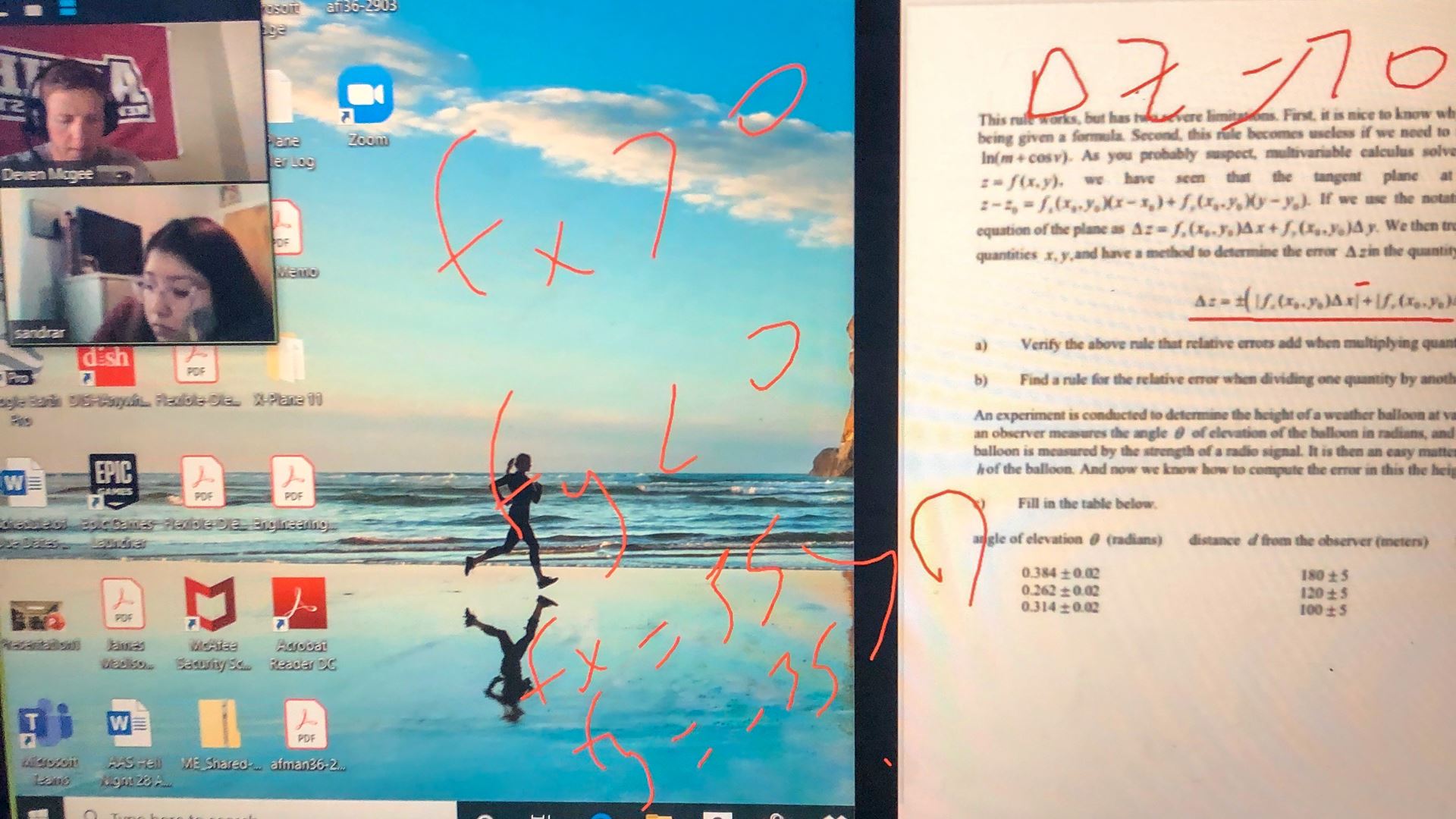When classes at New Mexico State University resumed March 30, Campus Tutoring Services was prepared to continue helping students, albeit in a new format.
“Campus Tutoring Services has provided NMSU undergraduate students free, accessible and convenient options to support their academic experience for our most in-demand courses on campus,” said Marci Salinas Milam, coordinator for Academic Success Center.
For the rest of the spring 2020 semester, Campus Tutoring Services will offer individual and group tutoring through NMSU’s Enterprise Zoom account at https://nmsu.zoom.us/ for remote tutoring sessions.
“Prior to COVID-19, Campus Tutoring Services offered approximately 15 in-demand courses online. Peer tutors have received in-person training by Academic Technology and have prior experience in online tutoring. For example, our nursing peer tutors have been providing online tutoring for the past four academic semesters to accommodate our remote location nursing students,” Salinas Milam said.
“CTS is committed to serving NMSU students and has expanded hours of operation to include 10 additional hours of service to students,” she said.
Campus Tutoring Services offers tutoring in 195 courses, and peer tutors are College Reading and Learning Association certified.
“In the face of a challenging time, our peer tutors have been 100 percent on board and supportive of the new technology and dynamics of their work environment,” Salinas Milam said. “Our peer tutors have been conducting real-time Zoom training in order to be prepared for the technical aspect of online tutoring.”
“I think it is amazing that Campus Tutoring was still able to offer this free resource to students during such hectic class and campus adjustments,” peer tutor Rachel Turner said.
A human nutrition and dietetics science senior, Turner was pleased with her first online sessions.
“The sessions went better than I expected. Zoom is extremely simple to use, and I am glad it was easy for my tutees to access my help,” Turner said. “One main challenge is that writing or showing examples to a student is not as quick and easy online compared to being in person and having a paper and pen in front of you or a dry erase board to use.”
During the online transition, Campus Tutoring Services has been able to purchase and provide peer tutors with technology to assist in their online sessions, including stylus pens, web cameras and drawing tablets.
To schedule a tutoring session, students can make an appointment through the Campus Tutoring Services website at https://campustutoring.nmsu.edu/ or email a peer tutor directly.
“When we look at how this impacts students going forward, we feel that it is important for students to understand Zoom’s practicality and functionality. Zoom at NMSU allows students to access tutoring sessions from anywhere with a reliable internet connection,” Salinas Milam said.
Zoom is available on laptops, desktops and cell phones. It will allow students to communicate with their peer tutors by using a microphone, webcam or a text-based chat box. An interactive whiteboard to diagram concepts is also available, and students and their peer tutors can screen share to review documents and clarify course material together.
“Overall, though, this online process may take up more time, especially for math and science- related courses,” Turner said. “Before online, students were able to walk in the doors and quickly receive assistance. They were also able to usually join in on a session – this was popular with physics, chemistry and nutrition. Now, tutors must send out individual Zoom links by appointments made by the tutee. A student may not receive assistance for one to two days because of this. However, I think our future trainings are going to successfully conquer this challenge.”

